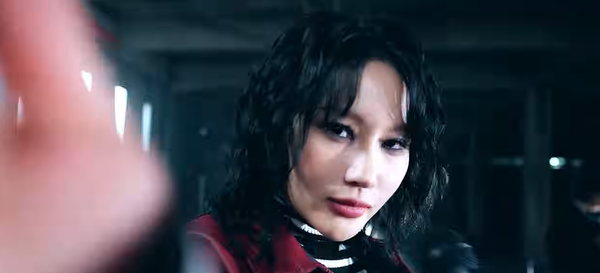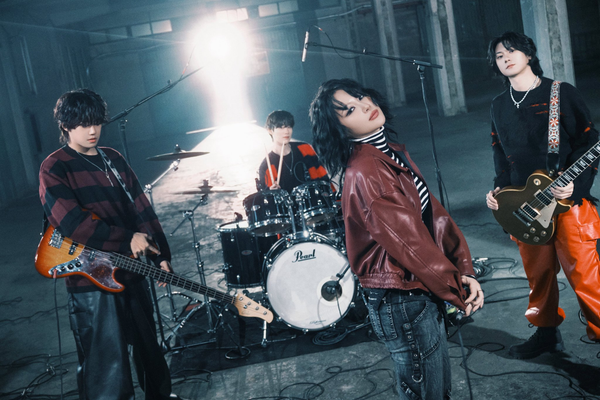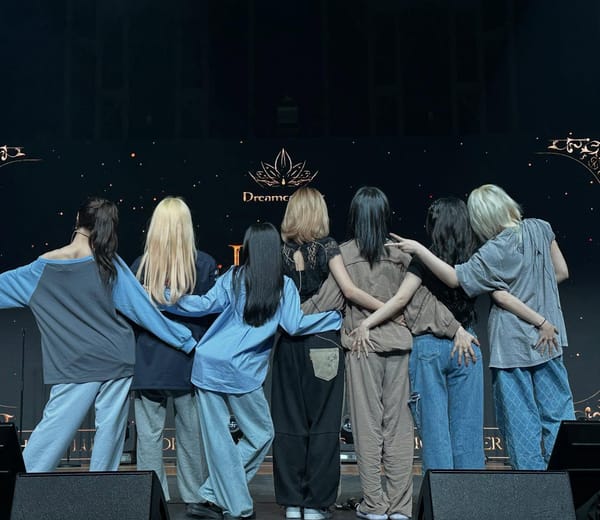A Cyberpunk Story Closer To Home In "Solace State"
The visual novel game from indie developer Vivid Foundry is a can't-miss topical thought exercise and more, given current news and events in 2023.

(NOTE: This article contains mild spoilers for “Solace State”. You can check out the free demo or PC version on Steam or hit up XBox for their version)
Admittedly, I’m not much of a visual novel game player. The last one that I played, during a charity live stream, was deceptively innocent-with-a-dark-twist game Doki Doki Literature Club, and, well, that’s not exactly the best example in the genre, at least insofar as what their appeal typically is.
I am, however, a voracious audiobook listener. Some of the best novels I’ve listened to over the years are the ones that not only gave me a good story but also made me think about and reflect on myself. For example, Brandon Sanderson’s “Stormlight Archive” series is as much about acceptable moral behavior, how we deal with our own self-doubt and psychological trauma, and what is considered correct or accepted in a tiered society as it is about cool, fantastical superhuman feats and sword-and-sorcery action.
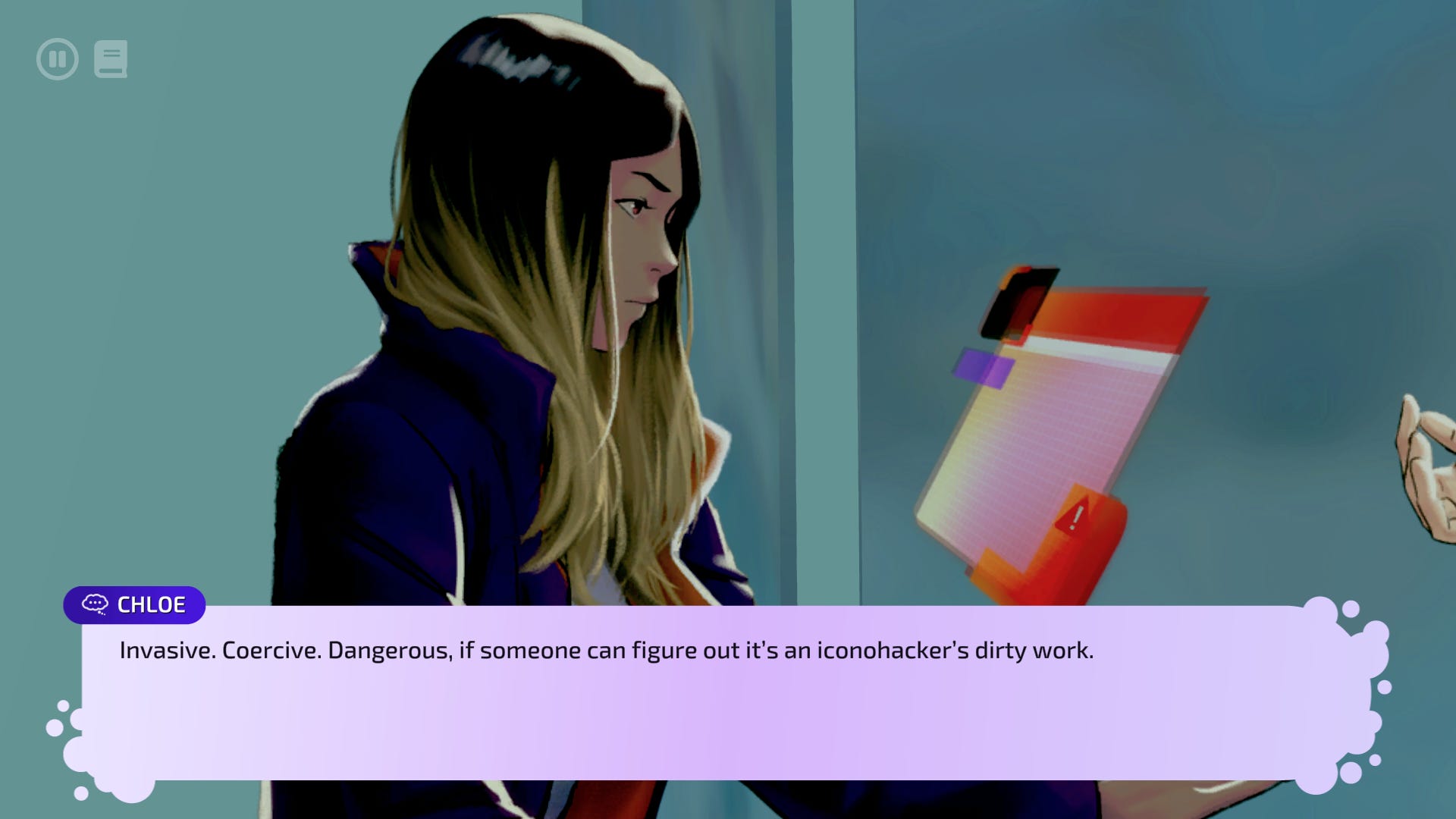
So when I caught wind of indie developer Vivid Foundry’s “Solace State” a few years back, I knew I had to follow it and begin keeping up with the game’s development. Because it’s just been released a couple of weeks ago as of this writing, you might think that the game, in part, may have sought to catch the flame lit by the recent visibility that games such as “Cyberpunk 2077” have brought to the genre. But I know better, given how long I’ve personally been paying attention to the project - “Solace State” was in development long before Keanu Reeves graced an E3 stage with a surprise appearance to talk about the CD Projekt Red offering. Both games have their appeal, but my playthrough of “Solace State”, with uniquely skilled hacker-turned-activist Chloe, was one I thoroughly enjoyed because it gave me pause to think, to be introspective, and, most importantly, see how close it hit to the mark of the technological, political, and societal issues that have gained visibility in the past couple of years.
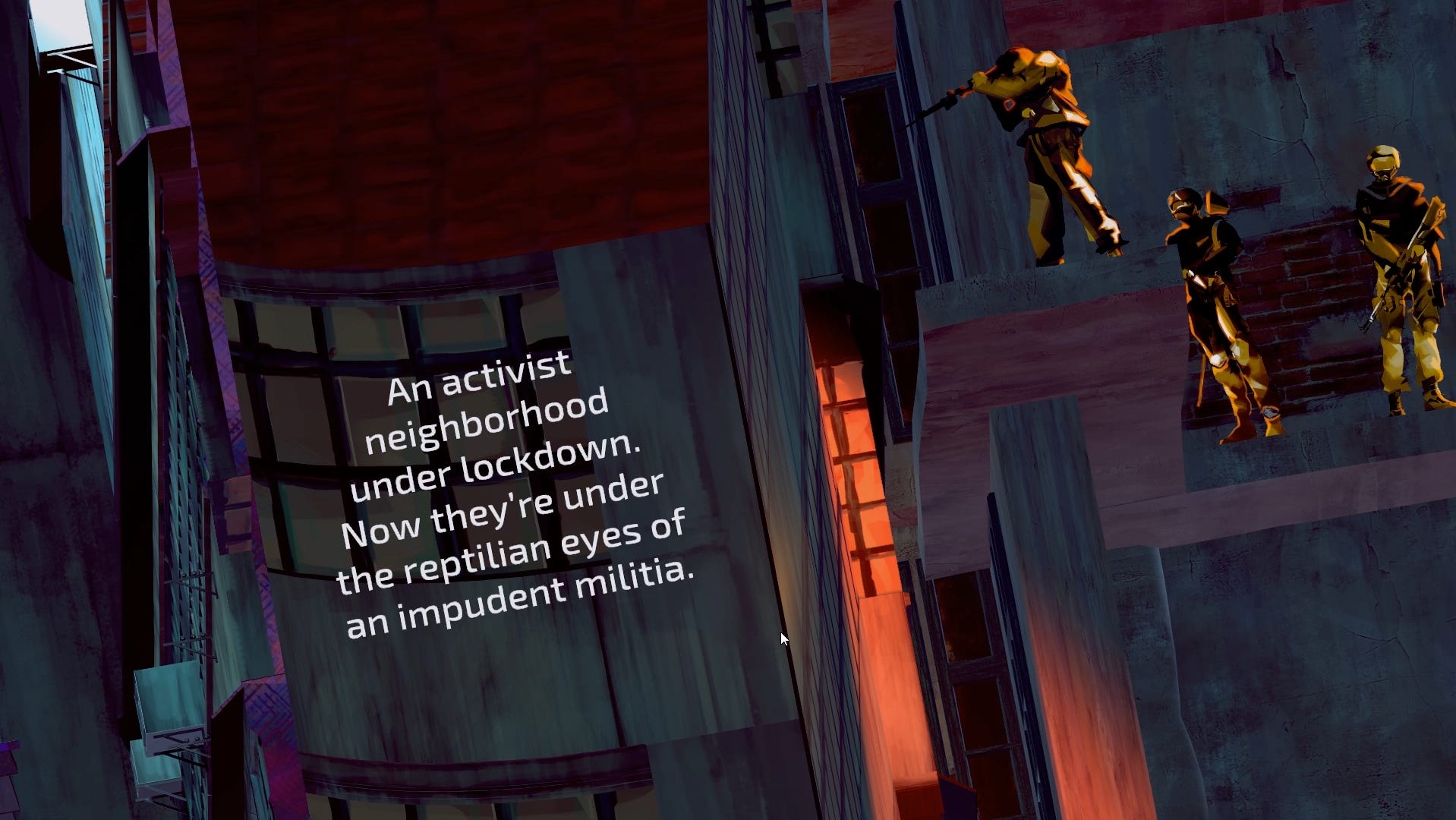
Part of the reason why I found my playthrough so striking and thought-provoking was the unique way in which the game was presented. Visual novel games as a whole are highly dependent on, not surprisingly, their ability to present a narrative to the player. In a mostly text-based medium, the way that characters look, act, and respond to your decisions, as well as how the user interface is presented, are big factors. “Solace State” and its visualization flow like water from scene to scene, with infrequent loading screens being the only interruption in how each set of dialogues plays out. Buildings kaleidoscope and transform seamlessly into intimate conversations within apartments, the camera pans around and closes in order to encompass wide-ranging scenes like a park filled with activism-related stations or a university campus, and character focus zooms or goes wide to catch reactions to dialogue choices. Coupled with a handy at-a-button-press chat log and codex, you’re always prepped to go back to see what someone said, who they are, or what a particular term in the world means.
And when you decide to use Chloe’s unique ability as an “iconohacker” (those who are “intuitive” and don’t require cybernetics to do their work) to gain insight into others in order to make good decisions (or even alter their cognition), there are appropriate, straightforward interfaces and easy-to-discern text that informs, but doesn’t overwhelm. The overall result is a narrative that immerses you in the world as a character, rather than staticly presenting items to you as a player.
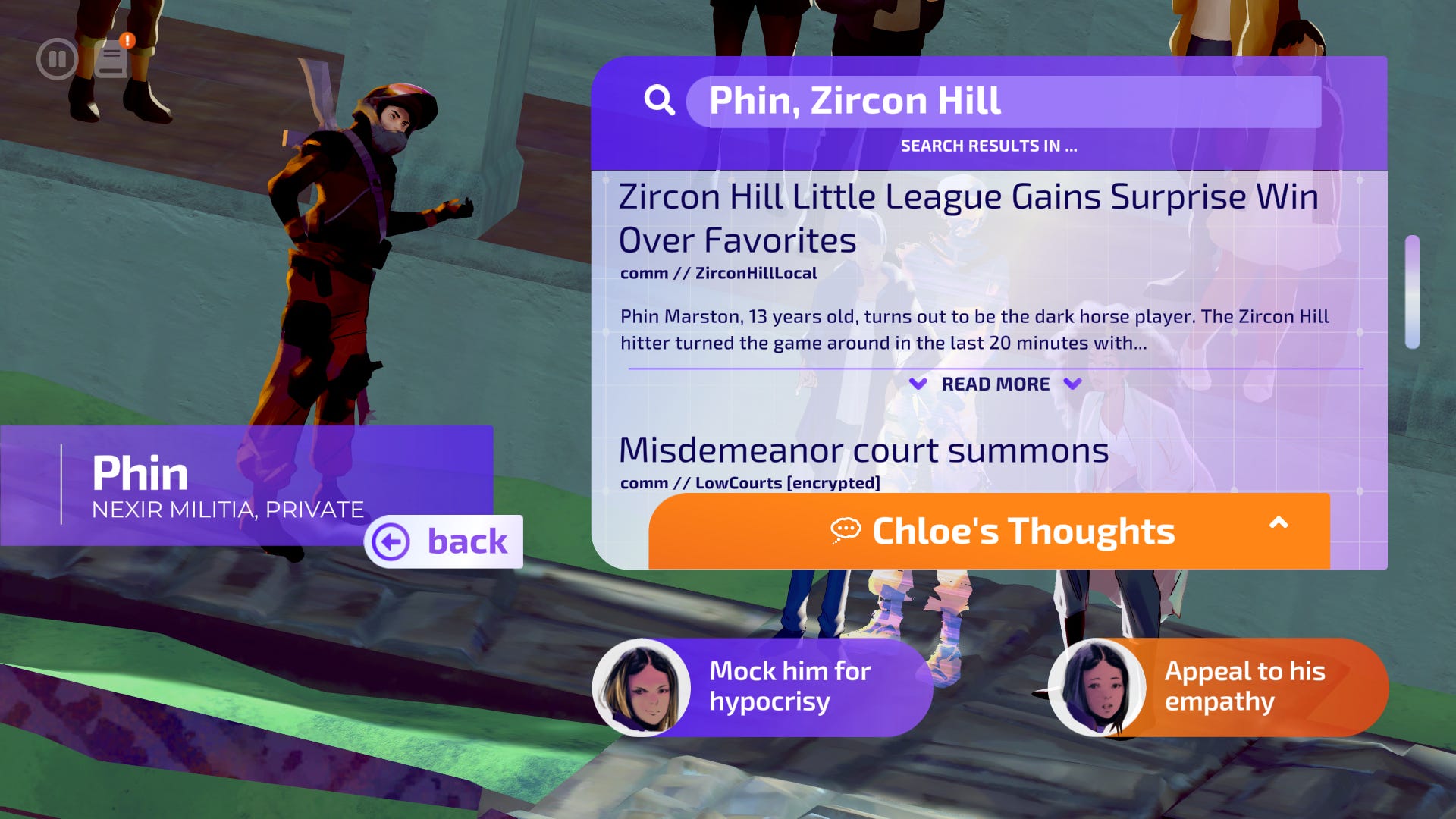
It’s the biohacking, the focus on the fringes of society (often shunned and left to struggle for any number of socioeconomic and identity factors), and the game’s background story, however, that makes a normally standard visual novel choice into a moral and ethical crossroads. The advantage Chloe has in terms of instantly finding out the “surface-level” information that her target possesses about themselves reminded me of the unique insight that the Phantom Thieves from “Persona 5 Royal” possessed - a look into motivations (some of them privately held) and ideas. What you decide has both short-term and long-term outcomes, especially if you decide to go far enough to tinker with a character’s brain. While I was given infinite time to decide what to do, that didn’t stop me from making definitive choices quickly that ended up playing out in unexpected ways - one example, for instance, resulted in me making a quick “ends justified the means” choice to stop violent escalation, which while understandable from a certain point of view, earned me immediate rebuke and wariness from the target character on which I’d used my mind mushing biohacking.
And that, I think, is where part of the intrigue came from. I only got through a single playthrough before sitting down to write this up, but whereas a game like “Persona 5 Royal” only lightly addressed the moral issue of forcibly changing someone’s identity or way of thought, “Solace State” is constantly asking you that question throughout many of Chloe’s choices. Do you aggressively use a character’s secret shame at being a biotech corporation’s enforcer to push them toward backing down, or do you empathize with them for it to do the same? Do you gently break off your hacking a potential contact as a show of honesty or do you press on knowing you need something from them that will be “for the greater good”?
I got the sense that even though I possessed an advantage over others, the game presented the idea that I might need to consider closely what having that biotech meant and how that normally unauthorized access to the mind could (or could not, depending on the situation) be ethically questionable - and it’s even more interesting when Chloe isn’t hacking, left by choice to her own devices in choosing the right or just outcome in an often unjust world.
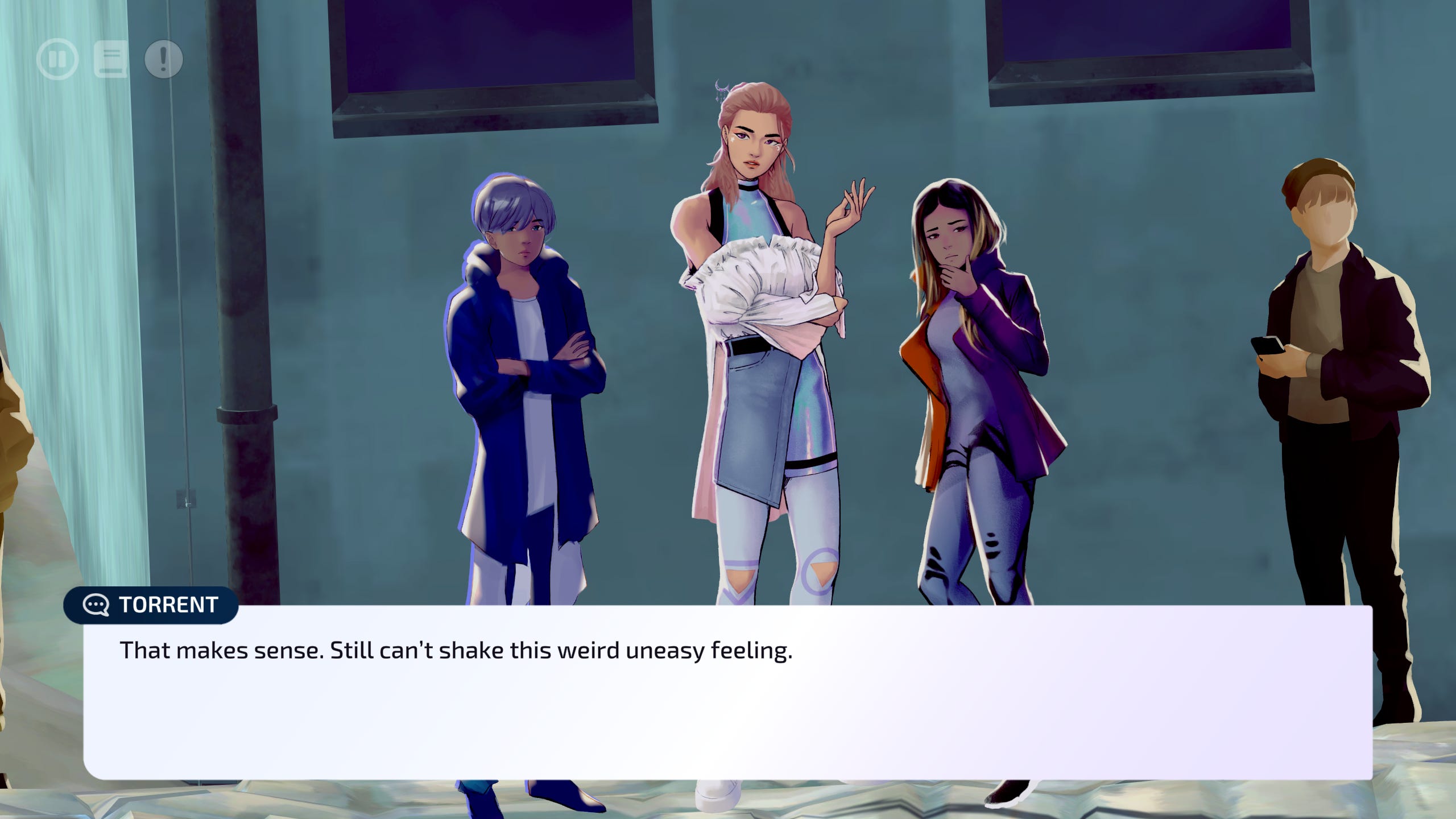
Ultimately, it’s that unjust world and the situations that it presents in a multicultural, traditionally underprivileged area of the city that I think makes the narrative of “Solace State” powerful and compelling among its peers in the visual novel genre. Cyberpunk’s appeal, in part, is a futuristic backdrop that presents a somewhat dystopian view of the use of technology, how cultures accept (or more often discriminate against) the frayed edges of society, and how that might change or be affected by disruptive forces (good or bad). The thing that makes “Solace State” so impactful is that the future it presents, as of this writing, may not be terribly far off. Currently, there are privacy concerns about large corporations having access to peoples’ data. There has been an ongoing debate about abolishing, defunding, or reforming enforcement bodies like the police. And while we’re not at the level of tech that iconohackers Chloe and Torrent have the ability to perform in the game, stories about the first human trials for brain implants currently raise safety and ethical concerns. It’s September 2023, and part of why “Solace State” seems so raw and real to me is because the issues it deals with aren’t set in a far-flung future - they’re right around the corner.
Still, despite this world, and the dilemmas and sometimes traumatic experiences of the various characters in the game’s narrative, there’s an injection of hope and determination. Without spoiling too much of what happens, activism and how you approach those ideas as Chloe is a big part of the overall story. You’ll see consequences from those approaches, as you craft your idea of how to give the people you interact with ways to overcome often improbable, if not seemingly impossible, odds. You’ll figure out if you find romance, or eschew it in favor of focusing on the goals of your budding movement. And as with the other issues I’ve mentioned, in making choices about your activism, you’ll see echoes of how different people in the real world approach the idea of fighting against and correcting injustices or perceived systemic issues with society. By the time you finish, one of a possible 38 (!) endings will bring you to a conclusion that, if it doesn’t seem ideal, will at least be known as one of your own creation. I distinctly remember being mostly satisfied with how things turned out, but wondered how different it would be if I’d made other choices. The point, however, is that I was engaged, and that engagement comes straight from feeling like the game hits story beats that are relevant to me.
“Solace State” is quoted as being “a drama of love, civil rights, and the biotech revolution”, but as I played through it, that drama felt less of a story, and more real and close at hand than any other story that I’d recently experienced. It’s this sort of timely release, where the world is grappling with very similar issues, that makes “Solace State” a game worth playing and experiencing at least once, if not multiple times. Be sure to give it a try, either on the free demo or PC version on Steam or hit up XBox!


